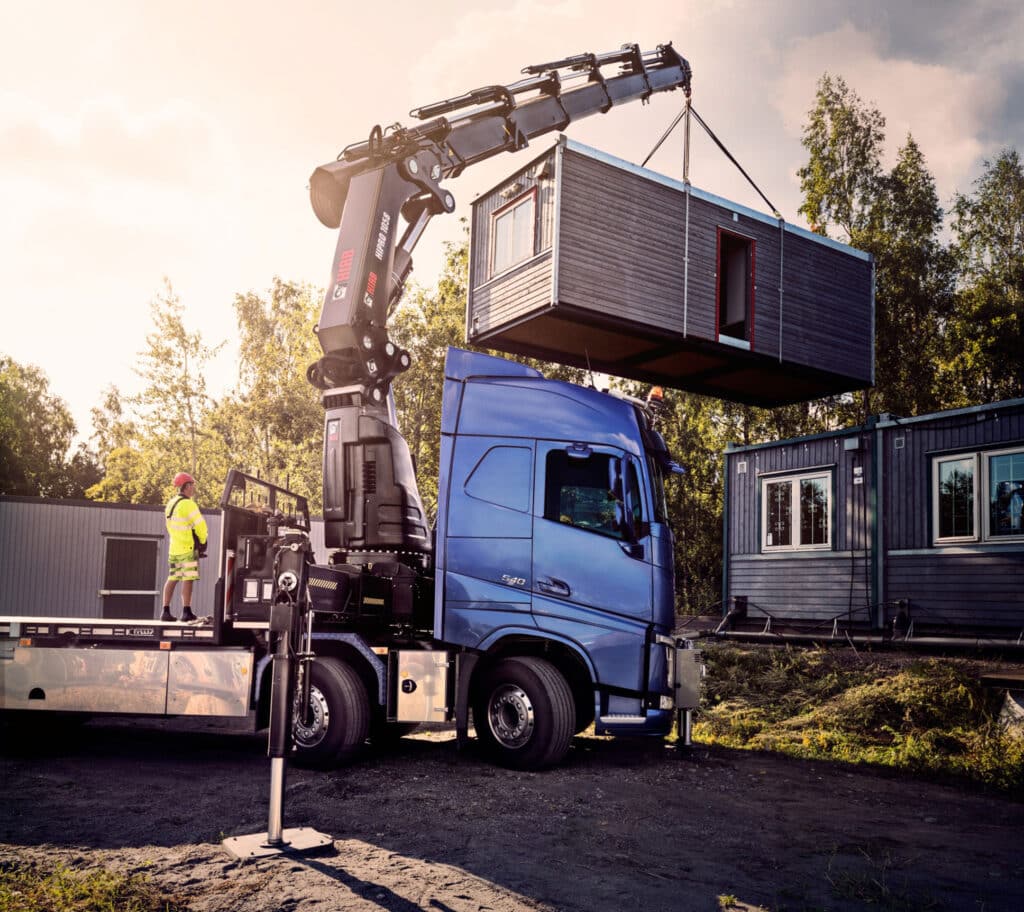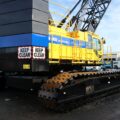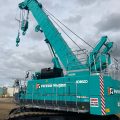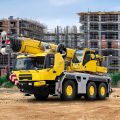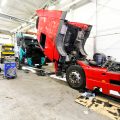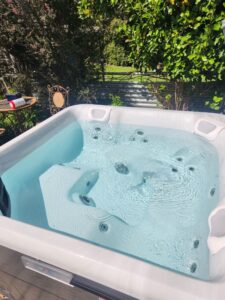Selecting the right Hiab truck crane for your New Zealand project isn’t just about lifting power, it’s about matching the right equipment to your specific environment, workload, and compliance needs.
With varied terrain across the country and strict safety standards to meet, understanding how to choose correctly can mean the difference between an efficient, safe operation and a costly delay.
This guide explores the key considerations when selecting a truck crane in New Zealand, from capacity and features to hire versus ownership decisions.
Understanding the Role of Truck Cranes in New Zealand Construction
What Makes Truck Cranes Essential for NZ Projects
Truck cranes play a critical role in the New Zealand construction, logistics, and transport industries. Their versatility allows them to handle heavy lifting, equipment placement, and materials handling across diverse sectors, from urban construction in Auckland and Wellington to infrastructure and wind farm projects in the South Island.
Because they’re mounted on trucks, these cranes can travel easily between job sites, providing both lifting power and mobility. They’re particularly valuable for short-term or multi-site projects where efficiency and quick setup times are key.
Common Types of Truck Cranes Available in New Zealand
New Zealand’s crane market offers several types of truck cranes suited to different applications. Hydraulic truck cranes are popular for their precision and smooth control, making them ideal for delicate lifts in tight spaces. All-terrain cranes combine highway mobility with off-road capability, a strong choice for projects that move between city and rural environments.
Rough-terrain cranes, on the other hand, excel in construction sites with uneven ground or limited access, such as forestry or infrastructure projects in more remote areas. Understanding these distinctions ensures the equipment aligns with both your lifting requirements and the environmental conditions you’ll face.
Key Factors to Consider When Choosing a Truck Crane
Assessing Project Requirements and Load Capacities
Before selecting a crane, assess the exact nature of the work to be done. Determine the maximum weight to be lifted, the required boom reach, and how frequently the crane will be used. Oversizing a crane can inflate costs, while under sizing one can compromise safety and efficiency.
In New Zealand, where projects often involve variable site layouts and unpredictable weather, flexibility is essential. Choose a crane model that comfortably handles your heaviest lifts while allowing for minor overcapacity.
Site Conditions and Accessibility Challenges
New Zealand’s landscape presents unique challenges, coastal winds, narrow city streets, sloped rural terrain, and remote job sites can all impact crane selection. In urban areas like Auckland or Christchurch, compact truck cranes that can manoeuvre through tight access points are preferred.
Conversely, in rural projects or areas with soft ground, rough-terrain or all-terrain cranes are better suited. Always evaluate ground conditions, space constraints, and the distance between lifting points before making your decision.
Safety and Compliance Requirements in New Zealand
Compliance is non-negotiable in New Zealand’s construction environment. All crane operations must align with WorkSafe NZ standards, including operator licensing, lifting certifications, and regular inspection requirements.
Choosing a crane from a provider that adheres to these regulations not only ensures compliance but also reduces liability. Make sure all operators hold a valid NZQA-recognised qualification, and the equipment has current inspection documentation and load test certificates.
Comparing Truck Crane Specifications and Features
Hydraulic Systems and Lifting Efficiency
Hydraulic performance is at the heart of any truck crane. The responsiveness of the hydraulic system determines how smoothly and accurately the load can be lifted or positioned.
Modern cranes feature advanced hydraulic systems that improve lifting precision, reduce fuel consumption, and minimise wear on components. When evaluating cranes, ask about the hydraulic system’s flow rate, control sensitivity, and maintenance requirements.
Mobility, Stability, and Setup Times
One of the major advantages of truck cranes is their mobility. A good truck crane should be easy to transport between worksites, set up quickly, and stabilise effectively even on uneven surfaces.
Look for models with automatic levelling systems and adjustable outriggers, as these features can significantly reduce setup time while improving safety. In fast-paced NZ construction environments, efficiency in setup and pack-down directly impacts project timelines.
Advanced Technology and Modern Crane Innovations
Modern cranes in New Zealand are equipped with advanced features such as load monitoring systems, GPS-based telematics, and real-time diagnostics. These technologies provide valuable data on performance, maintenance needs, and safe operation thresholds.
Investing in a model with these enhancements can improve productivity, enhance operator safety, and reduce the risk of costly downtime due to mechanical issues.
Truck Crane Hire vs Purchase in New Zealand
Evaluating Short-Term and Long-Term Project Needs
Determining whether to hire or buy depends largely on project duration and workload frequency. If your crane use is occasional or project-specific, hiring is almost always the more cost-effective choice. For construction companies with consistent lifting requirements, ownership may provide better long-term returns.
Pros and Cons of Hiring a Truck Crane in NZ
Hiring offers several advantages, lower upfront costs, flexibility to upgrade equipment, and access to well-maintained, compliant machines. Many NZ crane hire companies also provide trained operators and insurance coverage, reducing risk. However, frequent hiring can become expensive over time, particularly if your project pipeline demands continuous crane use.
When Purchasing a Truck Crane Makes More Sense
Buying a crane is a significant investment but can be beneficial for businesses with ongoing, heavy-lifting operations. Ownership allows for full control over maintenance schedules, operator training, and equipment availability. It also builds long-term asset value. Companies engaged in civil infrastructure, renewable energy, or large-scale construction projects often find that ownership delivers greater operational efficiency and cost control.
Working With Reliable Truck Crane Providers in NZ
What to Look for in a Reputable Truck Crane Hire Company
Choosing the right provider is as crucial as choosing the crane itself. Look for companies with a proven track record, comprehensive insurance, and strong safety credentials.
Reliable NZ crane hire firms should offer transparent pricing, detailed inspection reports, and evidence of WorkSafe compliance. A diverse fleet is also a good sign, it indicates that the provider can match the right crane to your project’s unique demands.
Importance of After-Sales Support and Maintenance Services
For both hire and purchase arrangements, after-sales support plays a vital role in performance continuity. A good provider should offer regular maintenance, quick access to spare parts, and technical support.
In New Zealand’s demanding conditions, where exposure to salt air, moisture, and uneven terrain can accelerate wear, regular servicing ensures that cranes remain reliable and compliant with safety standards.
Maximising Project Efficiency and Safety
Proper Planning and Load Management
Effective planning is the backbone of any successful crane operation. Detailed lift plans should outline load weights, swing radius, boom angles, and ground bearing pressures. These assessments minimise risk and improve lift efficiency. New Zealand’s construction safety culture places strong emphasis on pre-lift assessments, making it essential to integrate these practices into daily operations.
Training and Skilled Operation
Even the most advanced crane is only as safe as the person operating it. All operators should undergo certified training under the NZQA framework, with periodic refreshers to maintain competency. Skilled operators not only ensure compliance but also optimise performance by understanding how to balance lift capacity with stability and environmental factors.
Preventative Maintenance for Continuous Performance
Preventative maintenance extends equipment lifespan and reduces the likelihood of unplanned downtime.
Establishing regular inspection schedules, covering hydraulic systems, tyres, outriggers, and load sensors, helps maintain consistent reliability. In New Zealand’s variable weather conditions, including frequent rain and salt-laden air, corrosion prevention and lubrication checks are particularly important.
Final Thoughts on Selecting the Right Truck Crane for Your New Zealand Project
Choosing the right truck crane in New Zealand requires careful evaluation of your project’s requirements, site conditions, and compliance obligations. The right equipment improves safety, efficiency, and overall project outcomes, while the wrong choice can lead to unnecessary delays and costs.
Whether hiring or purchasing, work only with reputable, safety-focused providers who understand New Zealand’s unique operating conditions. By aligning crane selection with project goals, environment, and operator skill, you’ll ensure every lift contributes to a safer, more efficient build.

